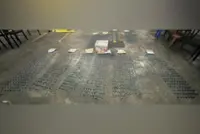Cliniface, a 3D facial analysis software, can help identify markers that humans may not be able to spot, said KKH genetics service senior consultant, Dr Saumya Jamuar (above). - ST PHOTO: EUGENE TAN
SINGAPORE (The Straits Times/ANN): The human face could hold the secret to diagnosing an array of rare diseases.
Curtin University in Western Australia and local healthcare cluster SingHealth are collaborating on the use of Cliniface, a 3D facial analysis software developed by Curtin researchers.
Already a subscriber? Log in
Save 30% OFF The Star Digital Access
Cancel anytime. Ad-free. Unlimited access with perks.





